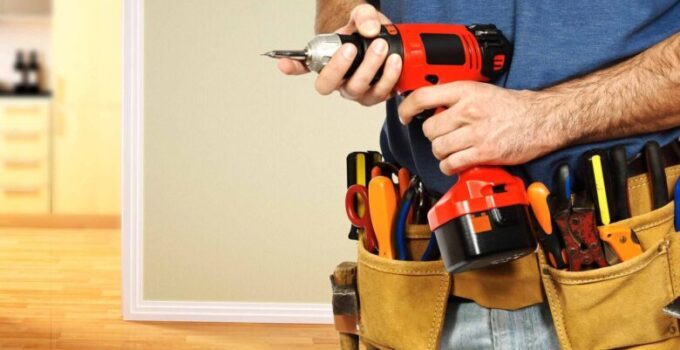These days, DIY and home maintenance are growing in popularity. As the amount of information we freely have access to, such as video instructions and detailed written guides, get better and become more readily available from experienced experts. It’s a given that more people are keen to try maintaining their own property and save themselves a bit of money in call-out charges and handy work.
However, home maintenance can include some risky business and if you aren’t careful, what should be some simple cleaning could turn into a painful injury. This is especially the case when working with tools, heavy furniture or when working at height. Performing a simple risk assessment can help you identify where things can go wrong before they do and help you have the necessary safety gear on hand.
A Risk Assessment – For Home Maintenance?
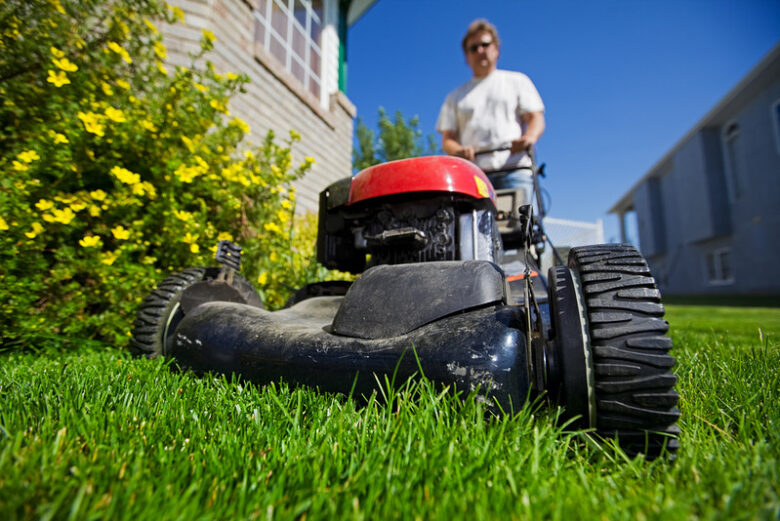
Source: marketwatch.com
Home maintenance is like any job, it should be thoroughly planned out before hand with an idea of what should happen when the job is completed (i.e. the walls will be painted) or what could go wrong if corners are cut (i.e. the walls are painted badly). While a risk assessment may seem like a complicated thing, it’s really just a fancy safety list that allows you to oversee the job before it’s begun and make sure you’ve got everything you need from the right tools to the best cleaning products.
First identify what the job is you need to carry out, for this example we will use cleaning the gutters out. Then make a note of the equipment you need to use; a ladder to reach the gutters, gloves to clear out the mucky leaf litter and foliage and a bin or bag to put the collections into. Then make a list of where the biggest risks are, in this example;
– Working at height can be dangerous and will need confidence and ideally, experience
– Working outside exposes homeowners to the elements, suitable clothing should be worn
– Use the right equipment for the job and use it according to instructions
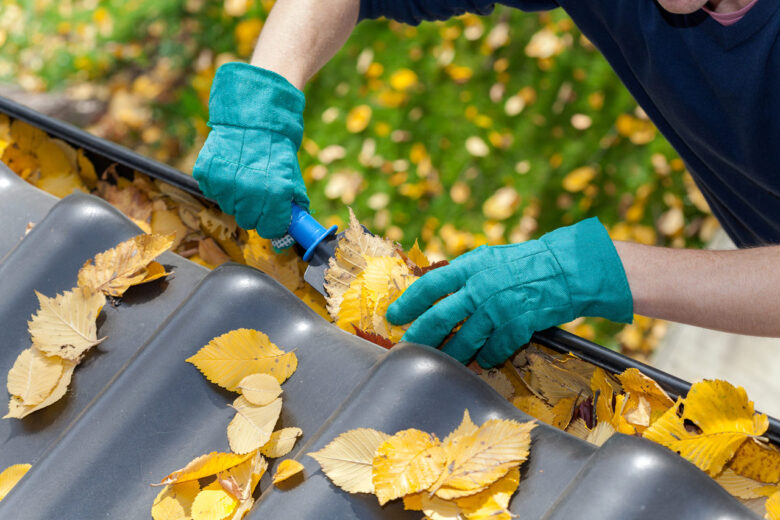
Source: discover.alesolutions.com
Working at height is the most dangerous risk in this list and should be accommodated safely, for instance, employing someone who holds a qualified certificate for working at height or even, receiving training yourself for working at height. There are plenty of training places available across the country and your nearest work at height training centre can be found with a local search, North East Access Training in Gateshead, for example. This is an excellent certificate if you want to expand on your own skillsets and can help you provide confident working at height services to others.
The other risks are fairly low on the hazard scale and can be alleviated by dressing warmly with no loose straps and fabric on a cold day or dressing safely with closed-toe shoes and no exposed skin if working on a warmer day. Make sure you use the right kind of ladder, a free-standing one where there is no safe space to lean a traditional ladder, and adhere to the four to one rule, for every four feet you need to climb, the base of the ladder should sit a further foot away from the wall.
Areas of the Home Where Safety is Key
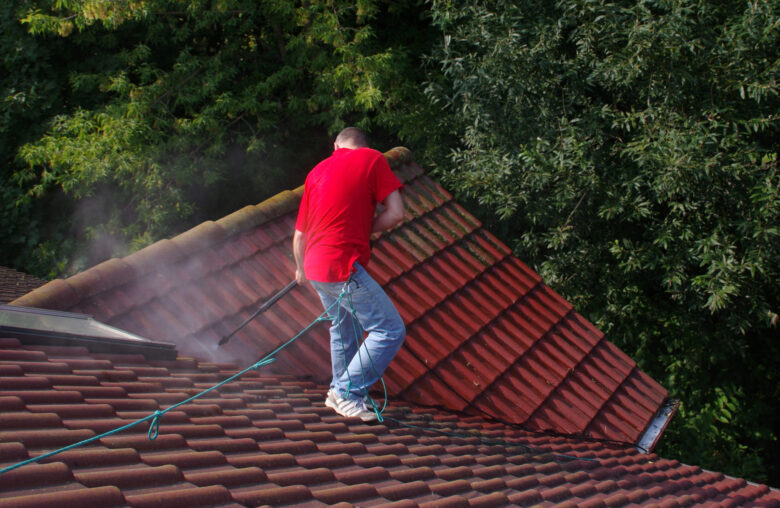
Source: trilogyexteriors.com
Accidents can happen all around the home however, there are some places where the danger is much higher than others and safety is paramount, especially while carrying out home maintenance.
In particular, if you own a gas boiler, maintenance on this appliance cannot be carried out by anyone other than a qualified and registered gas engineer and no work should be undertaken at all, regardless of how small the job is, unless you have a trained professional carrying out the work for you.
Structure work is again, an area of the home where it would be advantageous to employ a professional, someone with a portfolio of quality work who can tackle the job at hand with confidence and low chance of causing long-lasting damage.
Water work carries much less risk although no one wants to accidentally cause a flood in their home so ensure the water mains have been turned off before carrying out any small maintenance jobs. If you are replacing or repairing pipework, make sure you test this with a small glass of water prior to turning the mains back on, this way you can catch any leaks before you have a lot more water travelling through and causing a fast leak.
While not a gas boiler, fireplaces and chimneys are another area that should be left to the experienced or qualified, this is because a by-product of combusting fuels is carbon monoxide. CO or carbon monoxide is a fatal gas that carries no smell, taste or colour and can quickly fill a small family home if the dangerous gas has nowhere to escape to. Regardless of whether you use a fireplace regularly or not, if you have a device in your home that burns fuel in any capacity, you should have an audible carbon monoxide alarm somewhere nearby to alert you in case a build up occurs.
Proper Tool Usage
Using tools correctly and safely is essential, especially in settings like Thedecora where design and construction often go hand in hand. Always keep tools in good condition to ensure they function as intended. Damaged or worn-out tools can be hazardous. It’s also crucial to wear safety goggles when using tools that could produce flying particles, chips, or dust. If you’re working with sharp objects like knives or saws, make sure to store them in a secure location away from children.
Chemical Safety
Handling chemicals like cleaning solutions or paints requires special precautions. Always work in well-ventilated areas to dissipate fumes and prevent inhalation risks. Reading product labels is a must; they provide important safety information and usage instructions. Ensure chemicals are stored in original containers with labels intact to avoid accidental misuse.
Fire Safety
When working near flammable materials or in environments with a fire risk, fire safety is paramount. Always have a fire extinguisher accessible and make sure you know how to use it. Be cautious when using electrical equipment or flammable substances, and never leave them unattended. Following these safety measures helps mitigate risks and ensures a safer work environment.
If in Doubt Consult a Professional
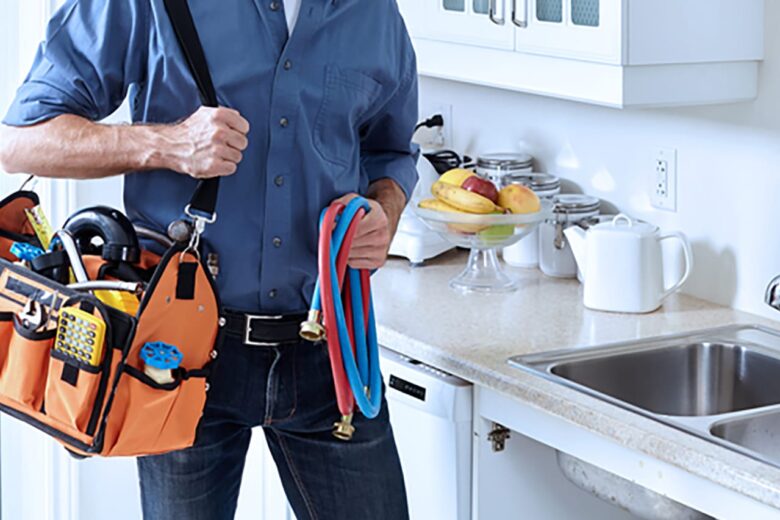
Source: theclouts.com
Our homes, whether we have bought them or are renting, are often our greatest asset and it’s important that just as we would look after ourselves, we look after our homes too. Regularly check around your property for indications of wear and tear and include regular maintenance into your monthly chore schedule, such as cleaning the gutters, inspecting windows for gaps in the frames and keeping an eye out for increased wear that could cause issues later on. The sooner you can get onto any issue you find around your home, the less chance it has of becoming a large and potentially expensive repair job.
If in doubt about some maintenance or repair work that is required in your home, consult a professional. There are many friendly and confident professionals around and they will be more than happy to provide advice on what your home needs to become tip-top again, although make sure you discuss in advance if there is any applicable consultation fee.

